Syria will cooperate on Adana counter-terror agreement if Turkey withdraws forces
The Syrian government declared its readiness to cooperate with Turkey on a 1998 agreement that requires Damascus to crack down on the presence of the Kurdistan Workers’ Party (PKK) “and affiliated organizations” in its territory, on the condition that Turkey first remove its proxies and troops from the country.
State-run Syrian Arab News Agency quoted a foreign ministry official on Saturday, January 26 as saying that Damascus “still adheres” to the Adana agreement, which he said enjoins the two parties to “fight terrorism in all its forms.”
“The Turkish government has been violating this agreement since 2011 and continues to do so through its support, financing, training, and facilitating the transit of terrorism into Syria, as well as its occupation of Syrian land,” the Syrian foreign ministry source said.
“Any implementation of this agreement is to be done through the return of matters on the border [to their pre-war status],” the source said, and called on Turkey to cease its support for “terrorists” and to “withdraw its military forces from the Syrian areas which they occupy.”
Turkey has maintained direct military presence in northern Syria’s Efrin as part of Operation Olive Branch since January 2018 and in northern Idlib and Aleppo provinces since August 2017 as part of Operation Euphrates Shield.
The source said the Syrian government considers a Turkish withdrawal a prerequisite for any renewed cooperation on the agreement, “which ensures the security and safety of both [countries’] borders,” be implemented.
Russian President Vladimir Putin invoked the agreement as a possible solution to Turkish concerns over YPG presence in northern Syria during a press conference with Turkish President Recep Tayyip Erdogan after their meeting in Moscow on January 23.
“There is still an agreement between Syria and Turkey from 1998 which concerns anti-terrorist activities,” Putin said, which “covers many issues relating to Turkey’s security on its southern borders.”
The 1998 Adana agreement is credited with resolving a previous Turkish military buildup on the Syrian border aimed at the PKK. Under the agreement, Syrian government promised to cease its support for the group, drive out its members, and to cooperate with Turkish efforts to interdict its activities in the future.
Turkish forces have been massing near the border and the government has threatened an imminent military operation to clear parts of northeastern Syria of Kurdish fighters.
Turkey considers the mostly-Kurdish Syrian People’s Protection Units (YPG), and it’s political arm the Democratic Union Party of Syria (PYD), to be inextricable from the PKK, which has fought a decades-long insurgency against the Turkish government.
U.S. support for the Syrian Democratic Forces – of which the YPG is a core component – as part of Operation Inherent Resolve, has included training, small arms, and close air support in the war against Islamic State, enraging Ankara.
U.S. President Donald Trump agreed to Erdogan’s request to withdraw American forces from Syria in mid-December, prompting northern Syrian political leaders to seek negotiations with Damascus, via Moscow, for a security deal.
Trump and Erdogan agreed to the establishment of a buffer zone during a phone call on January 14, but it is unclear who will administer the proposed zone.
The U.S. is seeking to use the buffer zone to protect the SDF and ensure Turkish security. U.S. attempts to negotiate protection for the SDF by leveraging Turkish officials’ doubts about the operation were publicly rebuffed by Erdogan earlier in January.
Ankara has made clear that it will not accept any YPG presence in the buffer area, and SDF leadership has said its forces will fight any Turkish presence in Syria.
“We will never allow a safe area to turn into a new quagmire against Turkey, like that in northern Iraq, where we still have problems,” Erdogan said on January 21.
“We are not talking about a safe area [as protection] from Turkey, but an area to keep terrorists away.”
On Friday, Erdogan said that the 1998 agreement allows Turkey to enter Syrian territory to secure the border.
“We need to bring the agreement to the table again,” Erdogan told reporters en route back to Ankara on Thursday.
“We’re in contact with all actors in order to eliminate terror elements in Syria,” Erodgan said, but denied high-level contact with the Assad regime, Hurriyet reported.
The Turkish Foreign Ministry did not respond to a request for comment.
Russia’s invocation of the proposal may offer Turkey an alternative to unilateral military action and dealing with U.S. demands of protection for the SDF.
“It seems Turkey and Russia have different notions on the Adana memorandum,” said Asli Aydintasbas, Senior Policy Fellow at the European Council on Foreign Relations.
“Russia’s reason for underlining it has to do with their desire to see Ankara directly engage with the regime. For Turkey, this is a memorandum that identifies PKK as a terrorist organization and gives Turkey the right to intervene,” she said.
Russian presidential spokesperson Dmitry Peskov said on Sunday that Turkish actions should not “lead to emergence of any quasi-autonomous territorial entities and threaten Syria’s territorial integrity.”
Peskov’s statement appears to reject Ankara’s vision for the safe zone, which Erdogan has said will entail Turkish involvement in local governance structures.
The proposal may also be a nudge from Moscow for Turkey towards re-establishing relations with the Syrian regime.
“If things were going well for Turkey’s military plans, they wouldn’t be talking about Adana,” a source with knowledge of the SDC’s engagement with the Russian government told The Defense Post.
The SDC has submitted a list of 10 demands to the Syrian government via Moscow before direct negotiations can begin. It is seeking a guarantee of protection and formal recognition for semi-autonomy from the Syrian regime.
Still, SDC officials are taking Turkey’s threats seriously. An delegation led by Ilham Ehmed is currently in Washington seeking U.S. support in the crisis.
SDC officials have repeatedly requested a no-fly zone for protection against a Turkish incursion, but say they have received no guarantees yet.
“Invoking Adana was clever,” said Alexander Decina, visiting fellow at the West Asia-North Africa Institute. “It gives the Russians and the regime good scaffolding to use Turkey as a bad cop in their negotiations with the YPG.”
Speaking in Morocco on Friday, Sergey Lavrov reiterated the agreement’s ability to “eliminate Turkey’s concerns about its security,” Turkey’s state-run Anadolu news agency reported him as saying.
The buffer zone proposal “cannot be the result of an agreement between Russia and Turkey. This should be the subject of an agreement with the participation of the Syrian government, because ultimately the need to restore Syrian government’s control over the country’s whole territory, including the zone, is clear to everybody,” Lavrov said.
Referencing Damascus’ obligations under the agreement to combat the PKK, Lavrov said that his government proceeds “from the assumption that this agreement remains in force. As I understand, so do the state parties to the agreement.”

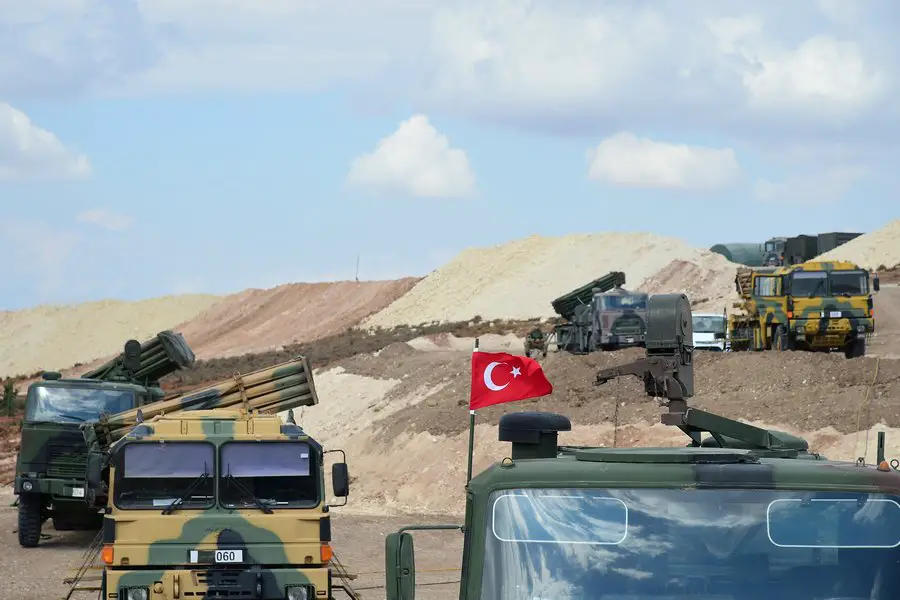
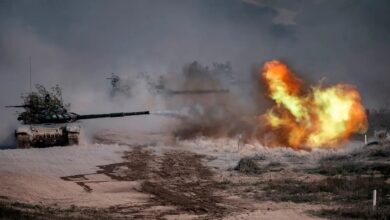
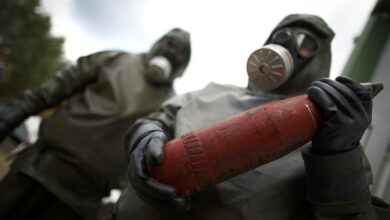

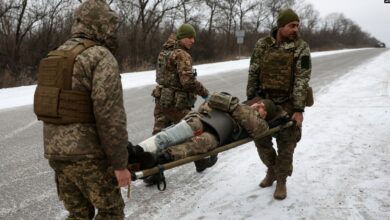


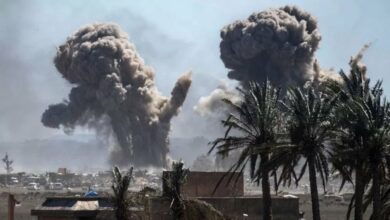
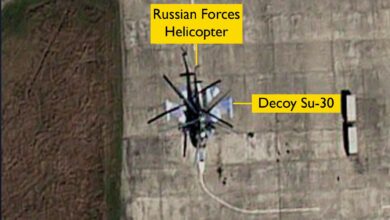

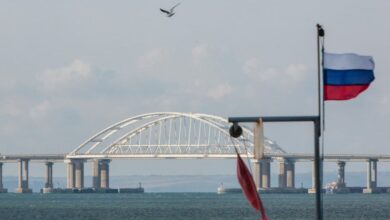
One Comment